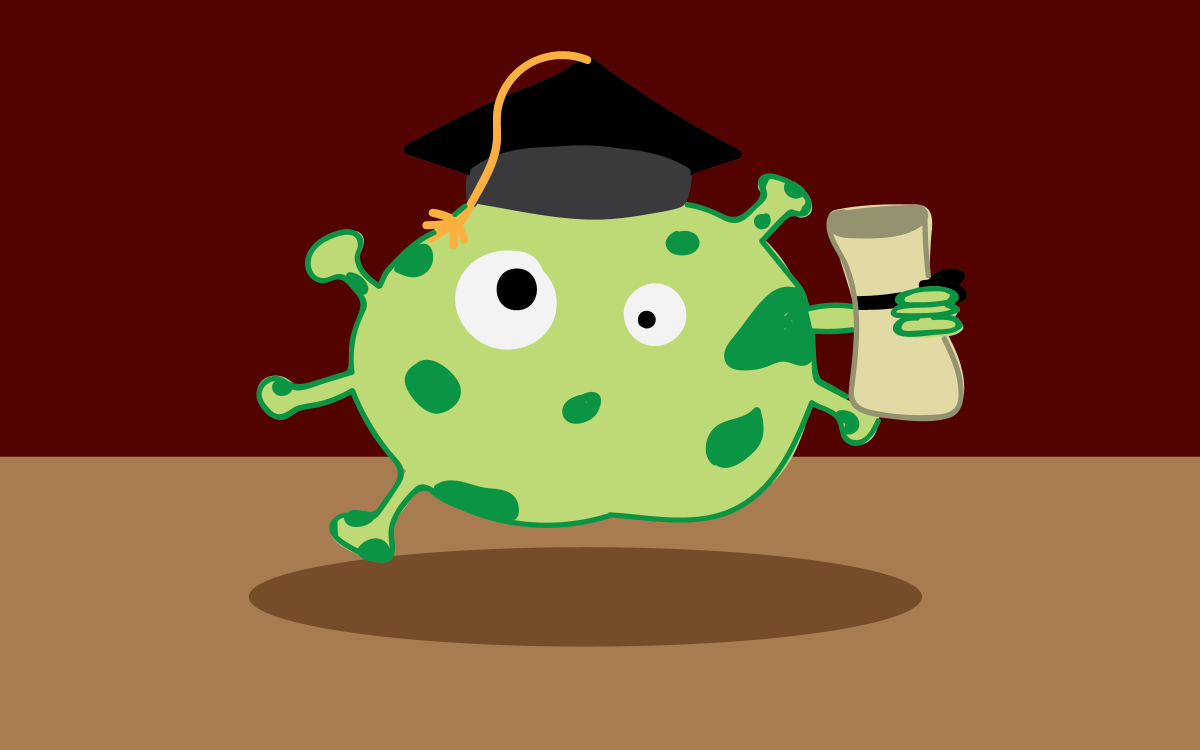
The department of Veterinary Pathobiology in the MU College of Veterinary Medicine recently announced a new Bachelor of Science degree program in microbiology. The core curriculum of the program includes five subject areas: bacteriology, immunology, mycology, parasitology and virology.
“We are taking advantage of courses that do exist on this campus and packaging them with new series of courses that we are putting together,” professor George Stewart, chairman of the department of Veterinary Pathobiology, said.
He mentioned that the degree requirement for microbiology is very similar to the course curriculum for biology and biochemistry. Thus, it is very easy for students within those programs to transfer in or out of the microbiology program.
He also emphasized that any incoming freshmen can enroll in the microbiology program right away, and there is no extra application as long as they meet the MU’s enrollment qualifications.
Stewart believes the microbiology program provides a solid foundation for students who are going for advanced degrees, research-related field or work as technicians in biotech and pharmaceutical companies.
“A former student in my laboratory started a company from some of the intellectual properties we developed in MU,” Stewart said. “He told me that he had a difficult time finding employees who have a good background in microbiology.
The student also mentioned that those who have microbiology backgrounds could potentially earn a higher salary, especially in the St. Louis and Kansas City area.
“Our program is the only undergraduate science degree program in microbiology in the state of Missouri,” Stewart said.
He also stressed that although there are other universities in Missouri that have a degree affiliated with study of microbiology, they don’t have the breadth of the courses MU is going to offer in their program.
Stewart said a lot of people were confused initially about why the degree of microbiology falls under the department of veterinary pathobiology. He said the factual answer is that the biggest collections of microbiologists on MU campus are under his department. He explained that the veterinary pathobiology department is a merger between the microbiology and pathology department.
Senior Fawn Whittle, who is studying biochemistry, said looking back she would have considered microbiology as her major because it would allow her to study particular areas of biology more in-depth.
“In life sciences, I think it’s important to distinguish yourself [from others],” Whittle said. “A lot of people have science degrees, but they don’t necessarily know what they can do with their degree.”
Whittle is also an officer of the Mizzou Student Chapter of the American Society for Microbiology. She said the student chapter in MU is a relatively new student organization where they hold workshops, meet and greets and mock interviews for MU students who are interested in microbiology.
“All majors are welcome and we take students from undergraduate to post-doctoral students,” Whittle said.
Second year graduate student Gustavo Santiago-Collazo serves as a representative of the Mizzou ASM student chapter. Santiago-Collazo said although he doesn’t know anyone who has transferred into this new program personally, he has talked to several students about the undergraduate program during the involvement fair recently. He believes once people start to know more about the program, there will be more people who consider transferring.
“We have faculty who were excited about the prospect, but the opportunities weren’t there until we decided to get this program running,” Stewart said. “We saw what we perceive to be an important need for these classes and in October the Board of Curators approved it and the Missouri Department of Higher Education approved it in the following month. And we are set to go in the coming fall.”
_Edited by Emily Wolf | [email protected]_